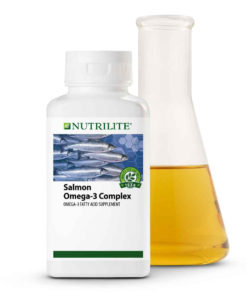
He should have received the Nobel Prize for his work on blood-cholesterol and hearth health. That’s what many people believe about John W. Gofman, Ph.D., M.D., and I count myself among them.
I first met Dr. Gofman and his team in the early 1960s at the University of California, Berkeley. He was a respected Medical Physics Professor, and I was a young graduate student working on my doctorate in biophysics under the direction of one of his top investigators, Dr. Alex Nichols, who became a very close friend over the years. I worked under him as a research assistant. In addition to that, I had the great honor of being a teaching assistant for one of Dr. Gofman’s classes on radioisotope methodology. I’m the lucky one as I had a front row seat to witness genius. It was certainly one of the best times of my academic life. It was also the time when I discovered that I had high blood cholesterol.
Changing the direction of public health
Dr. Gofman believed that the lipoproteins circulating in blood somehow played a role in the buildup of artery-clogging plaque, a condition that we now recognize as a cause of coronary heart disease. These fatty molecules were difficult to study, but he had a novel idea. Why not measure their flotation rate in an analytical ultracentrifuge? It was complicated science, and it proved to be the best way to measure lipoproteins in the blood.
Armed with this information, Dr. Gofman was able to predict the incidence of heart disease in people who had high blood levels of lipoproteins. He then began looking for ways patients could improve their blood lipid profiles simply by changing their diet, exercise and other lifestyle habits. Ultimately, he and his team identified a set of risk factors related to heart disease. It would be a first for medicine, and it’s still used today.
Prevention is what matters
I was lucky to be in the middle of such a scientific breakthrough and I was eager to put it to use to manage my own blood lipids. More than ever, I was committed to protect my heart by doing what matters: Eat better, exercise more, and consume Nutrilite™ supplements to bring my diet into better balance.
Too often, our world looks at ways to fix something. I firmly believe that prevention is a better approach. Of course, the foundation of the Nutrilite™ brand is prevention, and protecting heart health is no exception.
For this reason, a daily omega-3 supplement is part of my routine. The cardio-protective benefit of these fatty acids is well recognized. In fact, many health authorities around the world, including the World Health Organization, recommend an optimal intake of the long-chain omega-3 fatty acids EPA and DHA for heart health.
Balancing fatty acids for heart health
Including an omega-3 supplement in my daily routine also helps balance the ratio between omega-6 and omega-3 fats. Both types of fatty acids are essential for human health, but an excess intake of omega-6 fatty acids can spell trouble.
Scientists believe humans likely evolved consuming a diet with about a 1 to 1 ratio of omega-6 to omega-3 fats. Today, it’s a different story. With so many over-processed and fast food options in the typical Western diet, the omega 6 to 3 ratio has shifted. The typical Western diet now has an omega balance that has far too much omega-6s and not nearly enough omega-3s.
We can thank Artemis Simopoulos, M.D., for uncovering the importance of the omega-6 to omega-3 fatty acid balance. Dr. Simopoulosis a pioneer in this area of research and a leading expert on the health benefits of this critical balance. We can also thank her for helping to shape the direction of omega-3 products for the Nutrilite™ brand, which are now among our top selling products around the world.
A surprising link between omega balance and body weight
Dr. Simopoulos just sent me a fascinating study published in the July issue of Cell Metabolism that reveals new insights into the omega-3 balance and weight management. In this study, lead investigator Kevin Hall, PhD, from the National Ingstitutes of Health and colleagues asked 20 adults to live in the clinical laboratory for 28 days. The participants were all weight-stable men and women, 31 years of age, on average. They were fed an ultra-processed diet for two weeks, then switched to an unprocessed or minimally processed diet for another two weeks in random order. They could also eat as much as they wanted.
What is an ultra-processed food? Think foods like soft drinks, breakfast cereals, packaged snacks, desserts, mass-produced packaged breads, reconstituted meat products like chicken and fish nuggets, instant noodles and soups, and other ready-to-consume processed foods.
Interestingly, when the participants ate the ultra-processed diet, they ate faster, ate an extra 500 calories per day and gained two pounds. On the other hand, when they ate the unprocessed diet for two weeks, they lost two pounds.
Here’s the intriguing omega connection. Compared to the unprocessed meals, the ultra-processed meals had a substantially higher ratio of omega-6 to omega-3 fatty acids (about 11:1 for the ultra-processed meals versus 5:1 for the unprocessed meals).
This finding suggests that the weight control benefits of an unprocessed diet may be related to omega balance. This is a pilot study, the first randomized, controlled study of its kind, so I’m eager to see more research in this exciting arena.
Your action plan for omega balance
If you’re concerned that you’re not consuming enough omega-3 fats in relation to how much omega-6 fats you’re getting, there are a few simple things you can do to even out your diet.

First, cut down on over-processed and fast foods. In your home cooking, consider replacing corn, soy, sunflower and other vegetable oils that are high in omega-6 fats with ones that contain less omega-6 fats like olive oil. Add a serving of salmon and other fatty fish like herring, mackerel, trout or anchovies to your meals a few times a week. Eat plant sources of omega-3 fats such as chia seeds, walnuts, ground flaxseeds and flaxseed oil.
Of course, adding an omega-3 supplement to your heart-healthy diet can help. I believe this daily habit is one of the easiest ways you can maintain your omega balance over the long term and ultimately help protect your heart health.
Cheers,
![]()
P.S. Don’t forget you can subscribe to our RSS feed to have blog posts delivered right to your inbox.

Multumesc Multumesc Multumesc din suflet ❤
Thank you Dr Sam, this article is very useful.
Very very useful insights with respect to heart health and especially one of the multiple factors influencing the wellness of the heart.